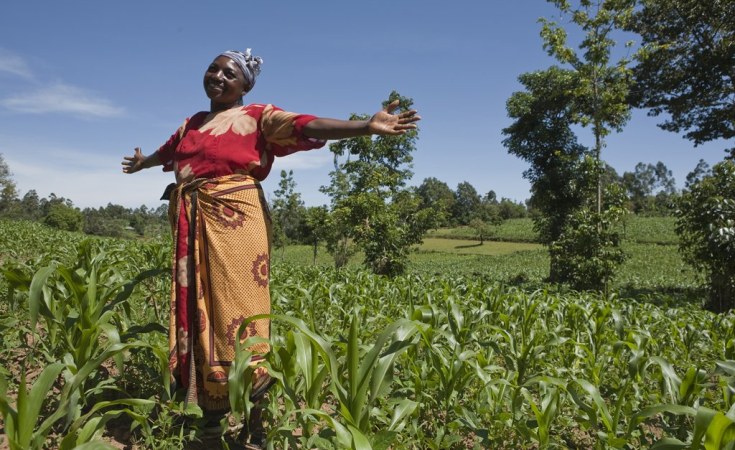Geneva — The global financial crisis raises threats to developing economies in Africa and elsewhere as well as to those in the developed world. Writing ahead of a major international meeting on development finance this weekend, Pascal Lamy, director-general of the World Trade Organization, says the times demand that world leaders show by their deeds that they remain committed to helping developing countries grow through trade and aid.
In every economic crisis, it is the poor and weak who suffer most. Individuals without savings or a reliable source of income face the most difficulty in surviving sharp economic downturns. It is the same for countries. As the world braces itself for the worst economic recession since the 1930s, anxiety is on the rise, particularly in the developing world where poverty alleviation programmes hinge on securing open markets and development aid.
These countries have every reason to worry. Deteriorating economic conditions often lead governments to embrace inward-looking policies that put domestic interests ahead of international cooperation. In tough times, it is easy for politicians to blame the foreigner for their nations' ills, shutting foreign products out of their markets and slashing foreign aid budgets.
Such is the level of concern that leaders of 20 major economies recently felt compelled to pledge publicly a moratorium on the imposition of new barriers to trade in the coming 12 months. They said also that they would make every effort to advance the Doha Development Round of global trade negotiations by reaching an understanding on two of its components, agriculture and industrial goods, before the end of the year. Leaders at last week's Asia-Pacific Economic Cooperation forum in Peru, and those at a meeting of the trade ministers of the world's least-developed countries in Cambodia, said precisely the same.
On Saturday the international community will gather in Doha, Qatar, for the United Nations' International Conference on Financing for Development. It will be roughly seven years after the World Trade Organization (WTO) launched in the same venue the Doha Development Round. The conference offers global leaders the chance to underscore their commitment to meeting the Millennium Development Goals (MDGs) and to reassure poor nations that the fierce economic conditions enveloping us today will not lead rich countries to scale back their efforts at reducing poverty in the developing world.
As part of the MDGs, governments pledged that they would develop further an open, rule-based, predictable, non-discriminatory global trading system. Achieving such a system lies at the very heart of the WTO Doha round. Concluding these negotiations is therefore an integral part of the global effort to tackle poverty and foster development.
Developed country governments pledged, moreover, to increase their development assistance to 0.7 percent of gross national income. Last summer in Japan, G8 leaders said they would increase overall development assistance to U.S. $130 billion by 2010. Part of these funds, governments have said, will be dedicated to building the capacity to trade in the developing world through technical assistance, infrastructure development and enhanced production capacity, so that poor countries can more fully derive benefits from trade.
Sticking to their MDG pledges is about more than altruism. The World Bank's latest projection is that global economic expansion for 2009 will be a mere one percent. Rich countries will see economic contraction of 0.1 percent while developing countries will continue to grow next year, albeit at an estimated reduced rate of four percent. The bank predicts that all developing regions of the world will continue to grow in 2009.
The developing world constitutes about one-third of the world economy. As the sole source of growth in 2009 these countries will represent important markets for developed and developing country exporters alike. But the growth levels forecast for next year will not be achieved if countries close their markets and turn off the flow of development funds.
Even without the imposition of protectionist measures, slackening consumer demand in the West is already hitting developing country exports. Moreover, the credit crunch has seriously undermined developing country exporters – and some in the developed world as well. A shortage of liquidity and disproportionate aversion to risk have led to a shortfall in available trade finance to the order of about $25 billion. The credit that is available is offered at rates three times more than in normal circumstances. Given that trade finance is one of the oldest, and safest, forms of bank lending, this risk aversion may be illogical, but logic does not seem to prevail at a time of such uncertainty and extreme market volatility.
At a conference in Geneva earlier this month, the WTO assembled private banks, international financial institutions and regional development banks to assess the problem and look for solutions. One possible means of addressing the problem is for international and regional leaders to shoulder some of the risk through co-financing and thereby entice private lenders back to this market. The World Bank's International Finance Corporation has already doubled its trade finance facility to $3 billion. The Organisation for Economic Co-operation and Development and export credit agencies are also stepping in. The Doha conference offers a very good opportunity for lenders to send reassurances to exporters that they are prepared to step in and support them.
These are uncertain times for the global economy. The recession we face may well shake our collective faith in the kind of sound policies that have helped reduce poverty in many corners of the world. This is the time for leaders to show by their deeds their commitment to trade and aid as two inseparable parts of a global development and growth agenda. Saturday is aid. Next is trade, with the clock ticking on the Doha Round.


